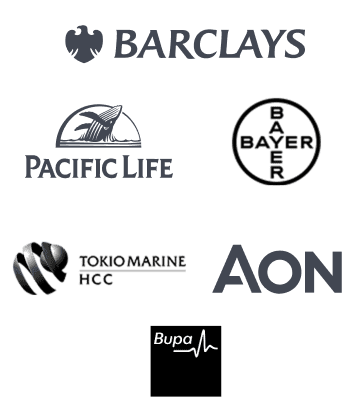Financial services
- Home
- Solutions Overview
- Financial services
InRule for financial services
Financial institutions rely on automation to ensure decisions are fast, transparent, and aligned with regulatory requirements. From lending to fraud prevention, process and decision automation helps organizations reduce risk while improving customer experience.

Challenges for financial services
Financial institutions struggle to modernize decisioning while meeting strict regulatory demands, managing fraud risk, and ensuring fast, transparent customer experiences.

Legacy systems and data governance
Banks often run on outdated infrastructure that complicates automation. Data silos, inconsistent formats, and weak governance slow deployments and increase the risk of failure.

Overwhelmed transformation without clear priorities
Organizations risk automating low-impact processes such as short-term pilots without a clear strategy. This leads to wasted spend, delayed value, and automation fatigue.

Regulatory complexity and execution risk
Multiple overlapping regulatory requirements, legal obligations, and evolving compliance standards make decision logic difficult to design, update, and prove to auditors.
Testimonials
Hear from our customers

Lee Company (facilities services)
Director of IT
Alabama Department of Public Health
Senior Manager
Fortegra Financial
Director of Application Development
Essity
Dana Chris Reaves, Director of IT
Residential Earthquake Insurance Company
VP Information Systems
Toi-Toys
Bart Daams: Regulatory Affairs & Compliance ManagerDriving faster, regulatory-ready financial decisions with InRule
InRule helps financial institutions externalize loan eligibility and compliance rules, orchestrate approvals, and integrate predictive fraud models with full explainability. Analysts can model in business language, test with irVerify, and deploy confidently using versioning and audit-ready reports. The result is faster loan cycles, transparent compliance, and reliable high-volume, low-latency execution.

Deliver regulatory-compliant, real-time financial decisions
Automating critical financial processes reduces manual effort, increases transparency, and ensures adherence to regulatory obligations while supporting growth and innovation.
Loan origination
Automate the end-to-end loan process, from application to approval. Rules manage eligibility and risk checks, while workflows route exceptions for review, reducing turnaround times for customers.


Fraud detection and prevention
Regulatory compliance
Create audit-ready decision trails by managing logic outside of your code. Automated rules ensure that compliance checks are consistently applied, reducing penalties and regulatory risk.


Risk scorecarding
Develop and deploy scorecards to evaluate credit and lending risk. Transparent calculations provide confidence to both regulators and internal risk teams.
Common use cases include loan origination, fraud detection, underwriting, risk scoring, regulatory compliance checks, and customer onboarding.
By externalizing logic into auditable rules, every compliance check is consistent, traceable, and ready for regulatory review. InRule provides multiple tracing capabilities: Visual Trace, Rule Application Reports, Points of Interest, and regression testing logs. Together, these provide an end-to-end audit trail for regulators and auditors.
Yes. Machine learning models flag suspicious activity, while rules enforce thresholds and fallback logic to keep fraud detection explainable.
Scorecards combine rules and data to measure creditworthiness or risk exposure. Automating them ensures consistency and faster decisions.
Customers benefit from faster loan approvals, fewer errors, and more consistent service, while institutions maintain governance and regulatory transparency.
Look for:
- Ability to externalize and audit regulatory compliance logic
- Integration with fraud detection and risk models
- Transparent rule modeling for regulatory reporting
- Workflow orchestration for lending and onboarding
- Versioning, testing, and monitoring for regulatory audit readiness
- Flexibility to adapt quickly to changing regulations
Resources
Role specific resources
Deliver great service experiences fast – without the complexity of traditional ITSM solutions. Accelerate critical development work, eliminate toil, and deploy changes with ease.








